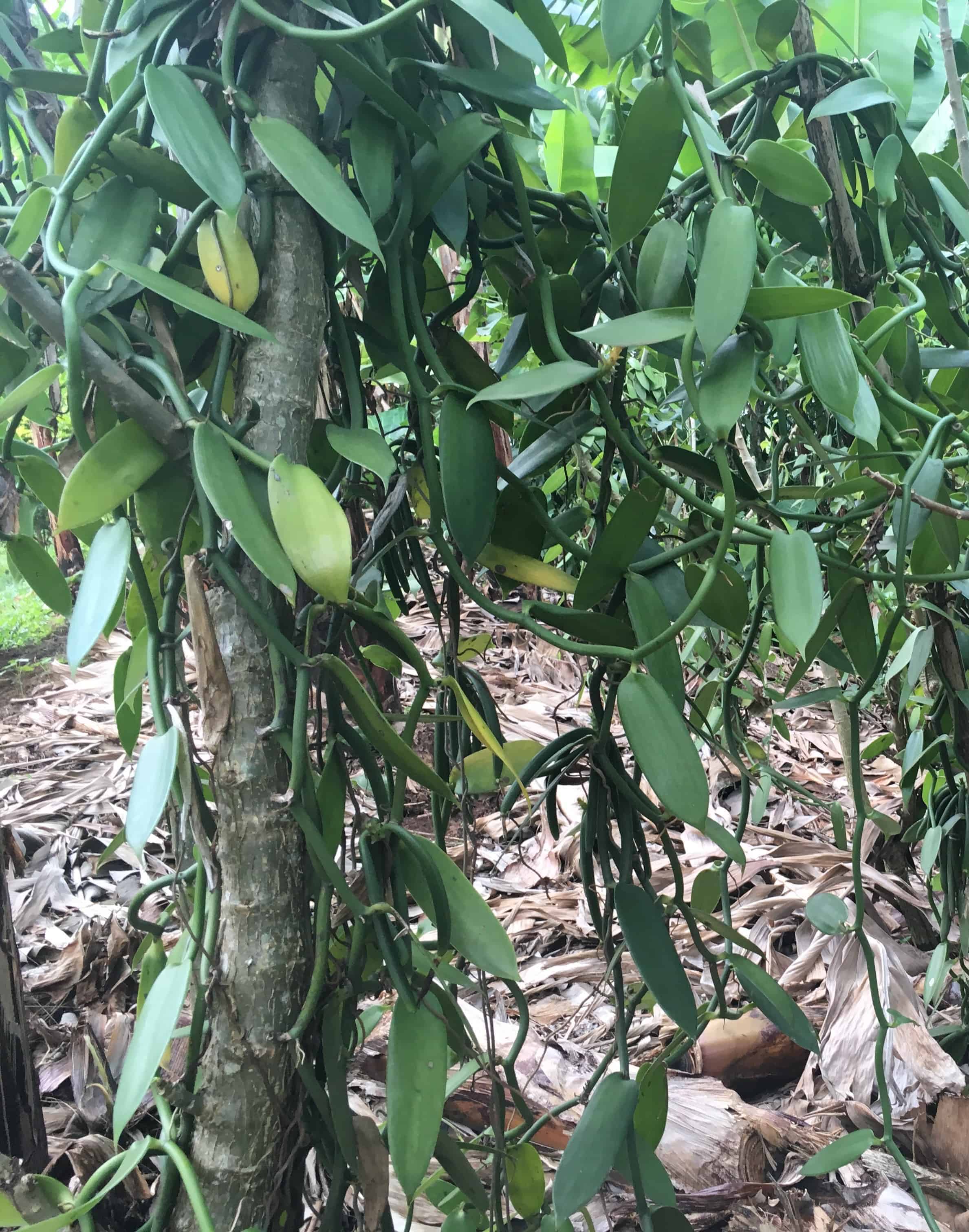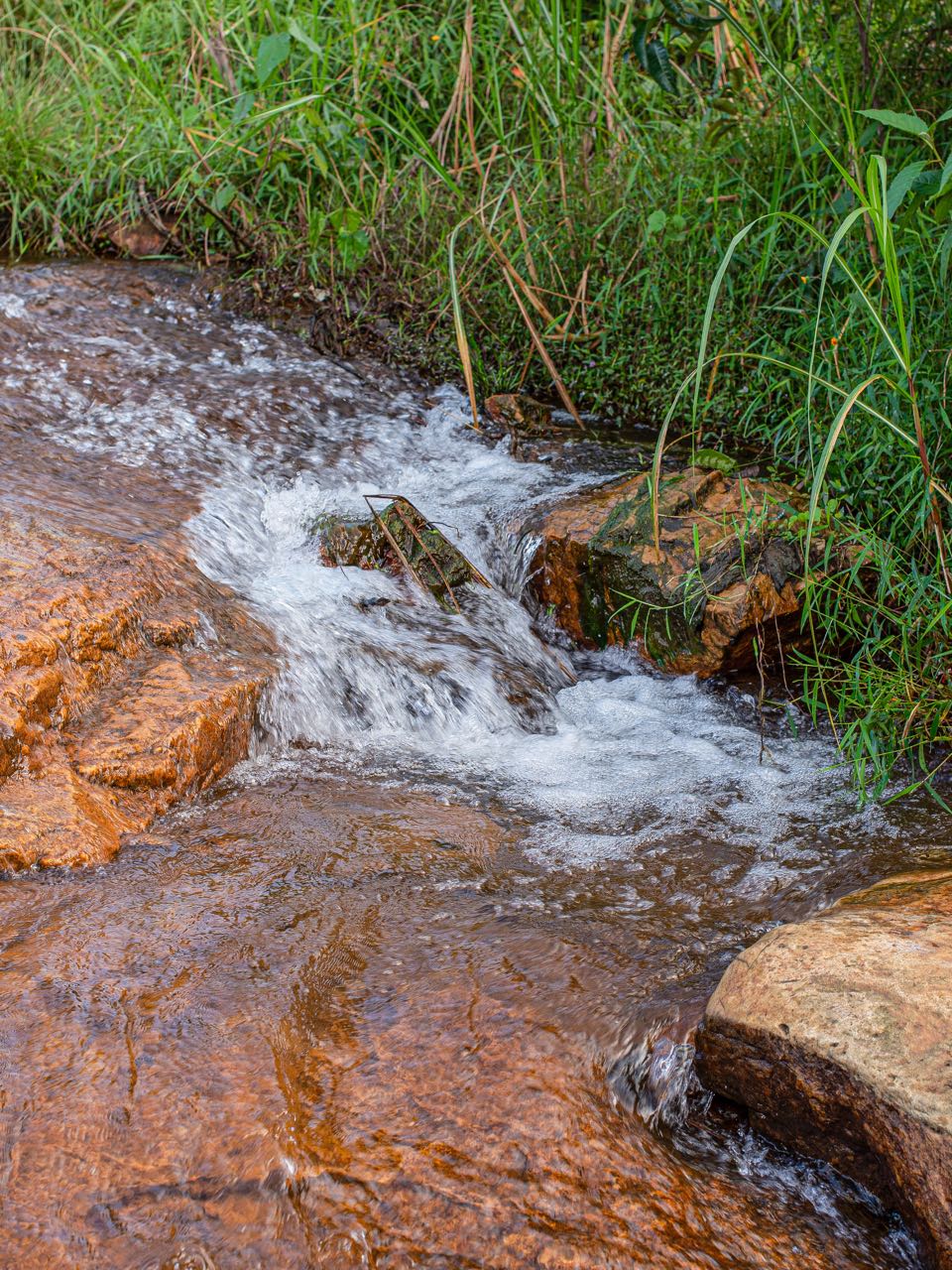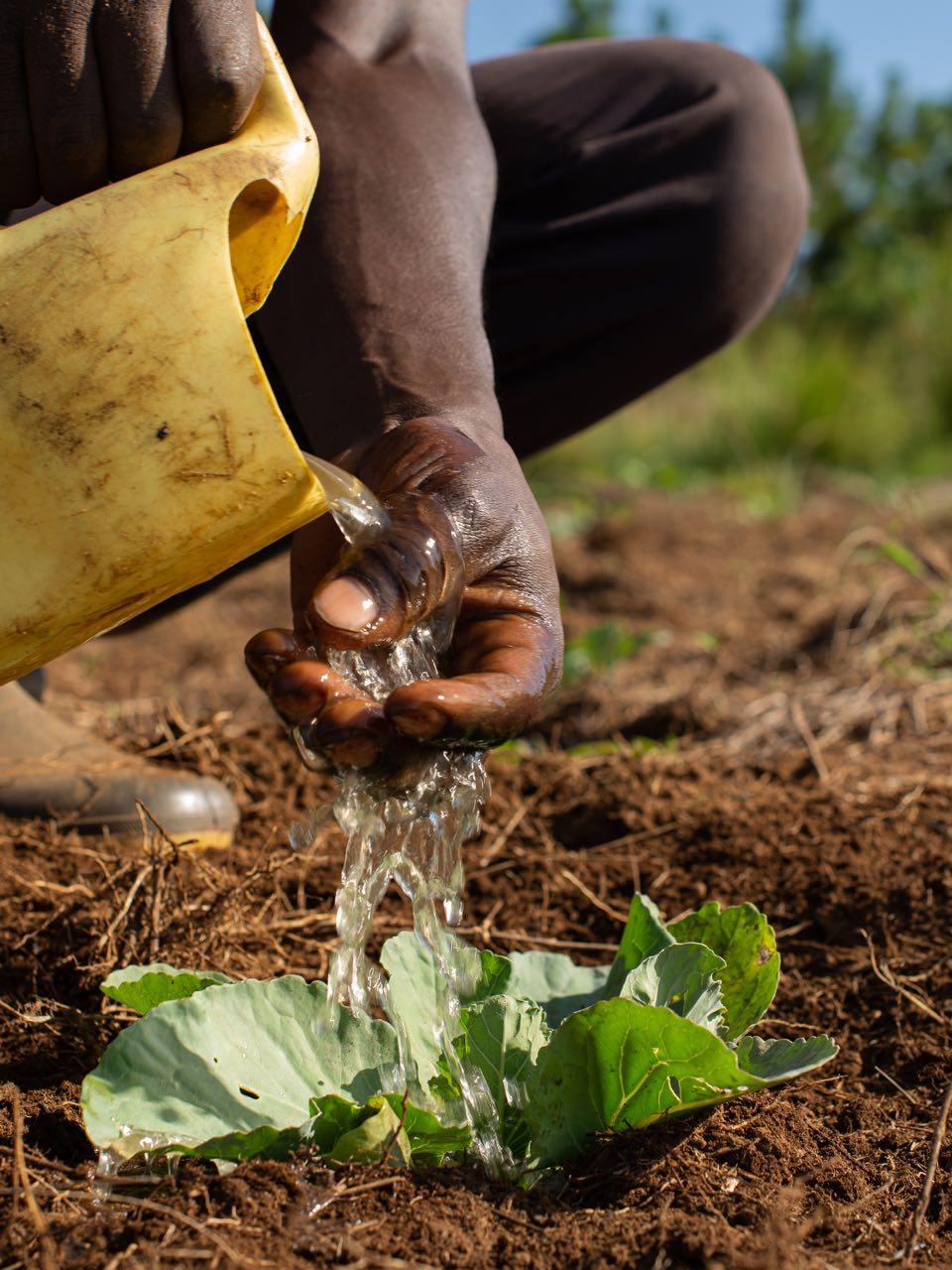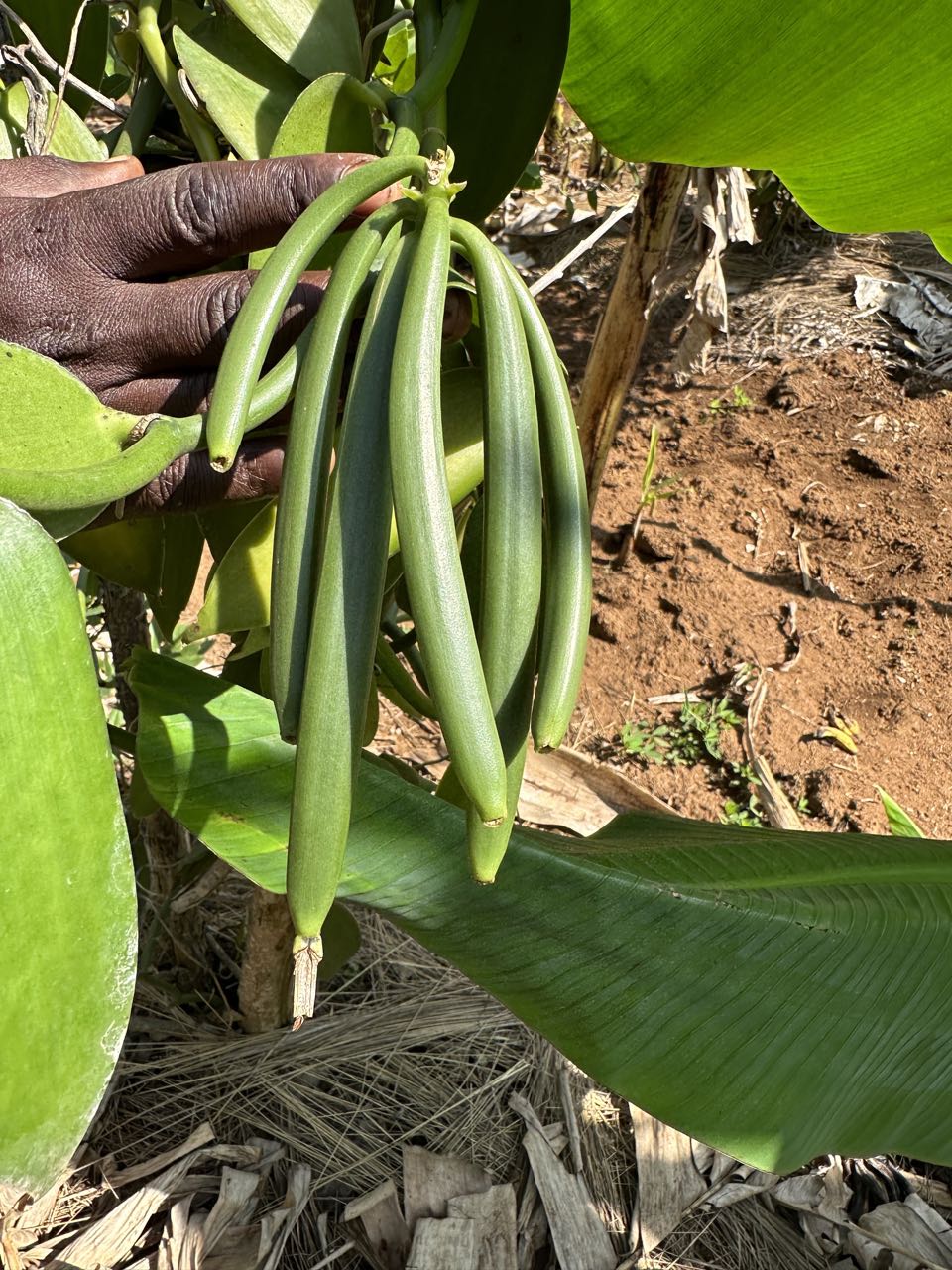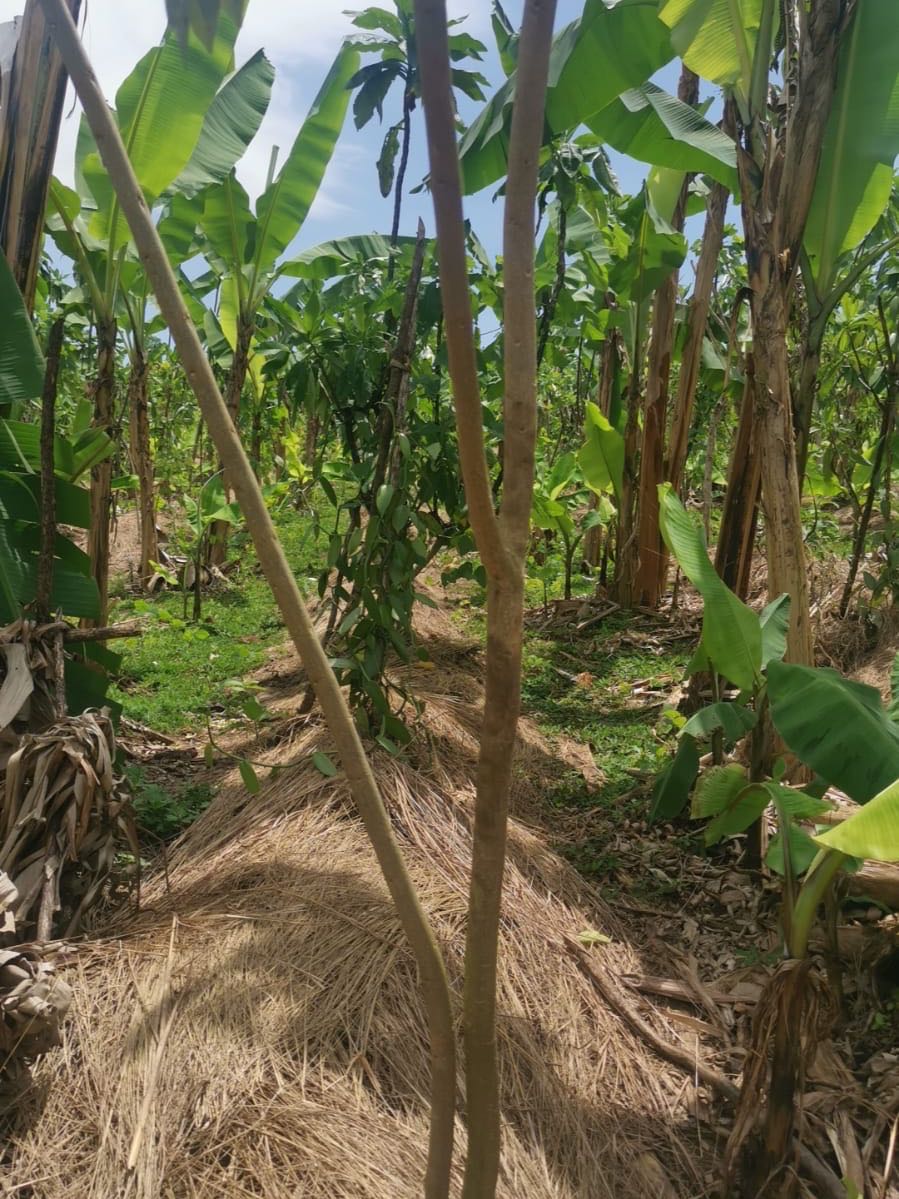Environment
How our farming practices impact the planet and how we best manage our environmental responsibilities
Environment in ESG
The general principle behind all our work: Work with nature to support the symbiotic relationship between plants and soil ecosystem contributing to the health of the plants and the ecosystem at large. We take local farming methods that have been developed over generations and ad new knowledge from both academia and vanilla farmers from the rest of the World. All with the aim of producing the best vanilla with no or a positive impact on environment, people and society.
As a farm in a developing country, our efforts on “Environmental” aspect of ESG focuses on how our farming practices impact the planet and how we best manage our environmental responsibilities
Sustainable Land Use
What we do to maintain soil health and biodiversity.
- We apply permaculture practices
- Soil health is the most important aspect of our work: Composting, building solid soil structure, using cover crops that are nitrogen fixating and reduces water loss from evaporation. This has the nice side effect that it also increases biodiversity by attracting various insects and birds. The versatile root structure contributes to diversity in the soil.
- We avoid or reduce digging in the soil to a minimum to avoid tearing up fungal mycelia and release carbon. Only when we plant new bananas do we dig. The vanilla is ‘planted’ on top of the soil without digging.
Water Management
We employ water-efficient practices to conserve water and protect water quality. We do that by
- Minimising the need for irrigation by covering soil with plants and mulching
- Using plants adapted to climate
- Using plants that reduce erosion which means less need for watering as their roots lock the water in the soil, and less wash out of nutrients
As a result we do not have the need for irrigation, which is not only good for nature but also for our finances.
Energy Efficiency
Utilising renewable energy sources, such as solar-powered systems, to reduce carbon footprint.
- Farm is run solely on solar energy and fire wood (renewable fuel)
- Kitchen uses hay box cooking to reduce need for fire wood
- Reusable batteries are charged with solar power
- We prioritise using manual work instead of machines to reduce carbon footprint
Waste Reduction
Implementing strategies for composting, recycling, and minimizing waste in farming operations is particularly important in areas where waste is thrown in landfills for future generations to deal with.
- Plastic is banned on the farm to reduce accumulation of waste
- All organic materials are composted (ash, food scraps, etc)
- All batteries that are used for lighting, radios etc. are rechargeable
- We re-use everything that can be reused. We use creative thinking ex: plastic buckets that are damaged and can no longer be used for holding stuff are re-used for making signs to name our composts, empty rice bags are used for holding plants in our nursery, leftover roof tin is used for collecting rain water.
Pesticide and Fertilizer Use
Using organic or bio-based alternatives and integrated pest management (IPM) practices.
- We are an organic farm, so we are working with several methods to support and balanced and healthy symbiotic relationship between soil ecology and plants
- In-house produced compost is key to all our work
- We use bio-based alternative to combat termites, fungus etc
- Weed is removed by hand and by planting other plants that makes weed’s life difficult and by using mulch
- We chose weed resistant plants
Greenhouse Gas Emissions
Monitoring and actively reducing emissions from farming activities, livestock, and associated transportation.
- As we do not have any livestock and our farm as a whole is binding CO2 in plants and soil, we overall contribute to the reduction of greenhouse gases in the atmosphere.
Habitat Conservation
Protecting natural habitats from deforestation or conversion to farmland, and preserving corridors for wildlife.
- We have chosen to place our farm on land that was already bare and not an indigenous forest
- We leave trees for bird life
- Avoiding invasive plants (we actively remove plants that are not indigenous but invasive), and protect original trees and plants
- The area near the river is left un-used to leave room for insects, birds and other wild life and avoid nutrients from the fields wash into the river during heavy rainfalls and pollute the water.
Climate Adaptation and Resilience
We are adopting farming methods that can withstand climatic changes, such as drought-resistant plants. In the Kagera region where the farm is located, dry seasons are in getting dryer and wet seasons have incresed rainfall with more frequently and heavier showers
- Vetiver grass is, with its elaborate root structure, planted and used to keep soil in place and avoid erosion as showers have become heavier and more frequent
- Ground cover and mulch is used to sustain water in soil during dry seasons
Pollution Control
Preventing runoff of nutrients and pesticides into local water bodies to protect aquatic ecosystems.
- Nitrogen is kept on our fields by reducing erosion (see above) and leaving an area covered with plants that will use the nitrogen and avoid it being washed into the river.
- The area near the river is left un-used to leave room for insects, birds and other wild life and avoid nutrients from the fields wash into the river during heavy rainfalls and pollute the watersource.
- We don’t use pesticides
- We only allow rechargeable batteries
- Plastic use is prohibited on the farm, and we encourage our workers to limit the use of plastic at their homes.
Certifications
Obtaining environmental certifications can enhance market access and pricing.
- Organic certified
- We will also get b corp certification
- Inspire and communicate important on issues like environment, bio-hazards, pollution etc both locally through our staff and to other vanilla producers around the globe.
- Everything we do is being shared. We are 100% open source.
